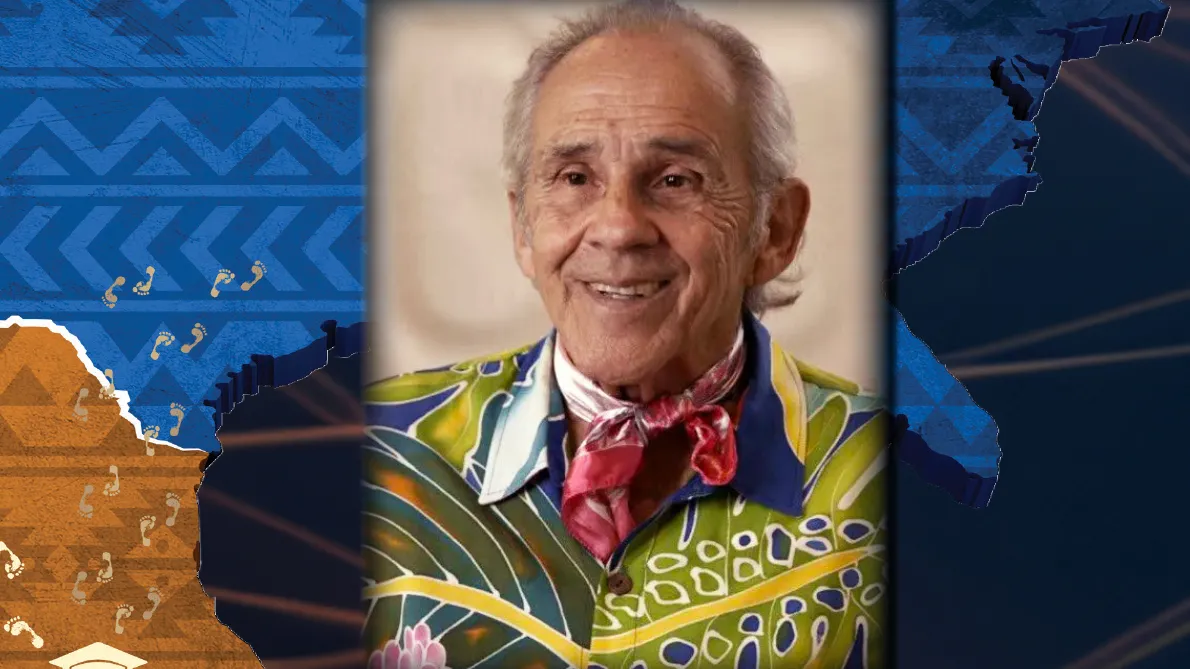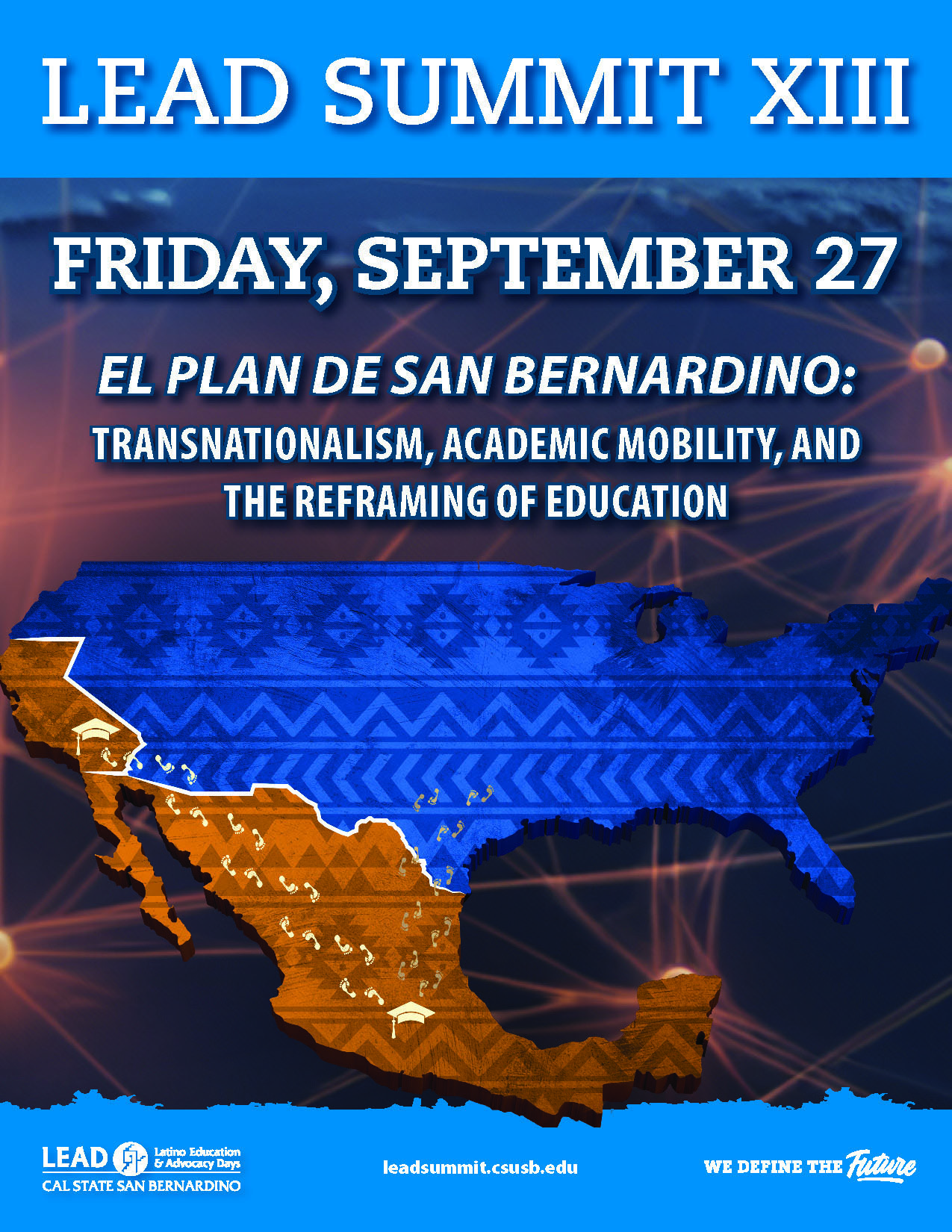Alan Llavore | Office of Marketing and Communications | (909) 537-5007 | allavore@csusb.edu

Whether you’re a millennial, Gen X, boomer or any other generation, and went to the movies or turned on the TV, chances are you have seen Pepe Serna. He wasn’t the star, but usually the guy to the left, the one who made the scene work and the star shine.
Serna is one of the longest working actors in Hollywood, and he has been named the Padrino de Honor (Honorary Chair) of the LEAD Summit XIII, an annual gathering at Cal State San Bernardino that this year is taking place on Sept. 27.
Each year, the Latino Education and Advocacy Days (LEAD) Project hosts the summit, which is open to the public and free to attend. It brings together teaching professionals and educators, researchers, academics, scholars, administrators, independent writers and artists, policy and program specialists, students, parents, civic leaders, activists and advocates – all sharing a common interest and commitment to education issues that impact Latinos to help them define the future.
LEAD Summit XIII’s theme is “El Plan de San Bernardino: Transnationalism, Academic Mobility, and the Reframing of Education.” It will take place from 8 a.m.-3 p.m. at the Santos Manuel Student Union South. Visit the 2024 LEAD Summit XIII Registration webpage to reserve your spot.
Throughout his career, Serna has inspired and paved the way for generations of Latino actors by defying stereotypes and fighting for representation in an industry that continues to largely ignore the Latino community.
Also an artist and motivational speaker, Serna was born on July 23, 1944, in Corpus Christi, Texas. With a career spanning more than five decades, he has appeared in more than 100 films and 300 television shows. He is perhaps best known for his role as Angel Fernandez in the iconic film “Scarface” (1983), where his character met a gruesome end in a memorable scene.
Serna's early career included roles in films such as “The Student Nurses" (1970) and “The New Centurions” (1972). He has also played significant roles in movies such as “Silverado” (1985), “The Rookie: (1990) and “American Me” (1992) with James Edward Olmos. His television credits are extensive, featuring appearances in shows such as “The Rockford Files,” “Knight Rider” and “American Playhouse.” (He also encourages everyone to also go to YouTube and watch “Raices De Sangre” (1978), which he says is “The greatest Chicano and Mexican movie ever made, shot in 1977.”)
More than an actor, Serna is also known for his work as an artist and a motivational speaker. He has conducted workshops and given keynote speeches, emphasizing the power of self-expression and cultural heritage. His documentary, “Pepe Serna: Life is Art,” and his book of the same title, highlights his contributions to Hollywood and the representation of Latino actors in the industry. This documentary is available on streaming platforms, including Amazon Prime and Apple TV+.
In addition to his film and television work, Serna has been active in theater and voice acting, showcasing his wide-ranging talents and enduring presence in the entertainment industry.
Now, in his 80s, Serna is determined to help solve Hollywood’s representation problem by empowering students in under-resourced communities to become the next generation of storytellers. “We’re so much more than anybody gives us credit for,” he said. “We’re good at anything and everything. And that’s why it’s important that I reach as many students as I can in my workshops.”
LEAD Summit XIII will address education as the principal issue by which to frame the U.S.-Mexico bilateral relationship; and for the purposes of this thematic explanation, LEAD Summit organizers aim to share two ways to view and consider education, and the process and content of education:
- First, education should be viewed as a right, not a privilege.
- Second, education should be viewed as an investment.
“Binational education partnerships are crucial for fostering social mobility and mutual growth between the United States and México, emphasizing the importance of shared educational goals and cultural exchange,” said Enrique Murillo Jr., LEAD executive director and CSUSB professor of education. “The U.S. and Mexico should collaborate officially, to better plan its shared mutual future by undertaking far-reaching binational and transnational interventions that expand and promote academic mobility, the education marketplace, and equitable advancement and opportunity for all. For today’s global economy, both the U.S. and Mexico need additional college graduates and a more ambitious plan to help us meet the imperatives of the current era.”
In February, LEAD helped organize the Building Academic Exchange Bridges Across Borders (California-Mexico and Beyond) 2024 meeting, the objectives of which were to:
- Promote an educational and cultural exchange program between California and Mexico (and beyond), based on the need to build a long-term binational academic exchange plan (2024-2030), through a network of higher education institutions, researchers, teachers, legislators and students of the region on both sides of the international border.
- Promote research, teaching and dissemination of problems related to the migration of Mexicans to the United States, their insertion into American society and their economic and cultural contributions to both countries.
- Define educational projects of academic extension and collaboration based on the proposals and discussions held at both binational higher education meetings.
The sessions can be viewed on the LEAD CSUSB YouTube channel at “El Plan de San Bernardino.” Part two of the meeting will take place at LEAD Summit XIII.
In addition, the summit will showcase as its featured exhibit the “Anthology of Dreams from an Impossible Journey,” a compilation by the California-Mexico Studies Center (CMSC) – the summit’s major sponsor – for its 12th anniversary in 2023. The book features 38 stories shared by Dreamers, selected from 215 participants in the CMSC’s Summer 2021 Dreamers Study Abroad Program.
“The CMSC has been an ongoing advocate for binational higher education exchange opportunities, and we recognize the value of international partnerships,” said Armando Vazquez-Ramos, CMSC president and CEO. “By intersecting histories, shared geography, and cultural/familial ties, the United States and México are each other's closest and most valued neighbors and partners. Empowering institutions of higher learning, students, and faculty to pursue educational opportunities abroad for academic, cultural and scholarly exchange paves the way for global engagement and expands potential educational partnerships between the two countries.”
Sponsorships for the summit are available. Visit the LEAD Sponsorship Opportunities webpage for information.
Visit the LEAD Summit XIII website for more information on the summit and LEAD’s other programs.
